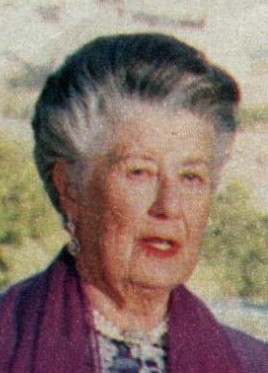 |
 |
 |
 |
 |
 |
 |
 |
 |
The Infanta Alicia of Spain
At his death in 1824 King Victor was succeeded in his British rights by his eldest daughter, Queen Mary III and II (Duchess Maria Beatrice of Modena). If Queen Mary had died without any legitimate issue, she would have been succeeded by her younger sister Maria Theresa from whom the Infanta Alicia is descended. The claim made on behalf of the Infanta Alicia rests upon the assumption that the issue of Maria Beatrice by Duke Francis IV of Modena was not legitimate, based upon the premise that their marriage union was invalid in British law. Maria Beatrice was the niece of her own husband, Duke Francis IV of Modena being the younger brother of Maria Beatrice's own mother, Archduchess Maria Theresa of Austria. In spite of this relationship Francis was only thirteen years older than Maria Beatrice. When they married in 1812, Francis was 32, Maria Beatrice was 19. As uncle and niece, Francis and Maria Beatrice were related in the first degree according to the canon law of the Catholic Church (the third degree according to the canon law of the Church of England). According to the canon law of the Catholic Church (of which both parties were members), any marriage union between such persons required a dispensation from the local bishop; otherwise the marriage union was invalid. Since both Francis and Maria Beatrice were members of reigning houses the marriage dispensation had to come from the pope himself (in order that a monarch could not force a dispensation from a bishop who was his own subject). Francis and Maria Beatrice received such a dispensation from Pope Pius VII and their marriage took place on June 20, 1812, in the cathedral of Cagliari on the island of Sardinia. As such, their marriage was absolutely valid according to the canon law of the Catholic Church and according to the civil law of the Kingdom of Sardinia. Such a marriage union between uncle and niece would not have been valid had it been attempted in the Church of England, whose Table of Forbidden Marriage Degrees as found in the Book of Common Prayer (1662) forbids marriage within the Church of England between a man and his sister's daughter. But, since Francis and Maria Beatrice married validly in the Catholic Church in Sardinia, their marriage was also regarded as valid in Britain, which recognises as valid those marriages legitimately contracted in foreign countries (i.e. since it was valid in Sardinia, it was also valid in Britain). Had Maria Beatrice (Queen Mary III and II) not had any legitimate issue, she would have been succeeded in her British rights by her sister Maria Theresa (1803-1879), who in turn would have been succeeded by her grandson Duke Robert I of Parma (1848-1907). Duke Robert would have been succeeded by his sons Duke Henri (1873-1939) and Duke Joseph (1875-1950), both of whom were born with a congenital mental disorder. Duke Joseph would have been succeeded by his brother Duke Elias (1880-1959) who in turn would have been succeeded by his only surviving son Duke Robert II (1909-1974). Duke Robert II would have been succeeded by his sisters Elisabeth (1904-1983), Marie-Francoise (1906-1994), and finally Alicia (born 1917). None of these individuals have ever made any claim to be heirs to their ancestor King Victor Emmanuel I of Sardinia in respect to his British rights. The claim made on their behalf has had virtually no adherents, but it has frequently been raised by supporters of the Hanoverian-Windsor dynasty as a ploy to embarrass and divide the Jacobites.
|
|
This page is maintained by Noel S. McFerran (noel.mcferran@rogers.com) and was last updated November 12, 2003. © Noel S. McFerran 1998-2003. |
